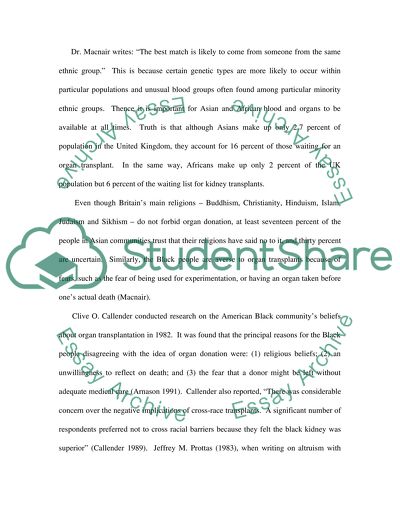Cite this document
(“Cultural impact on organ donation Essay Example | Topics and Well Written Essays - 1000 words”, n.d.)
Retrieved from https://studentshare.org/sociology/1519030-cultural-impact-on-organ-donation
Retrieved from https://studentshare.org/sociology/1519030-cultural-impact-on-organ-donation
(Cultural Impact on Organ Donation Essay Example | Topics and Well Written Essays - 1000 Words)
https://studentshare.org/sociology/1519030-cultural-impact-on-organ-donation.
https://studentshare.org/sociology/1519030-cultural-impact-on-organ-donation.
“Cultural Impact on Organ Donation Essay Example | Topics and Well Written Essays - 1000 Words”, n.d. https://studentshare.org/sociology/1519030-cultural-impact-on-organ-donation.


